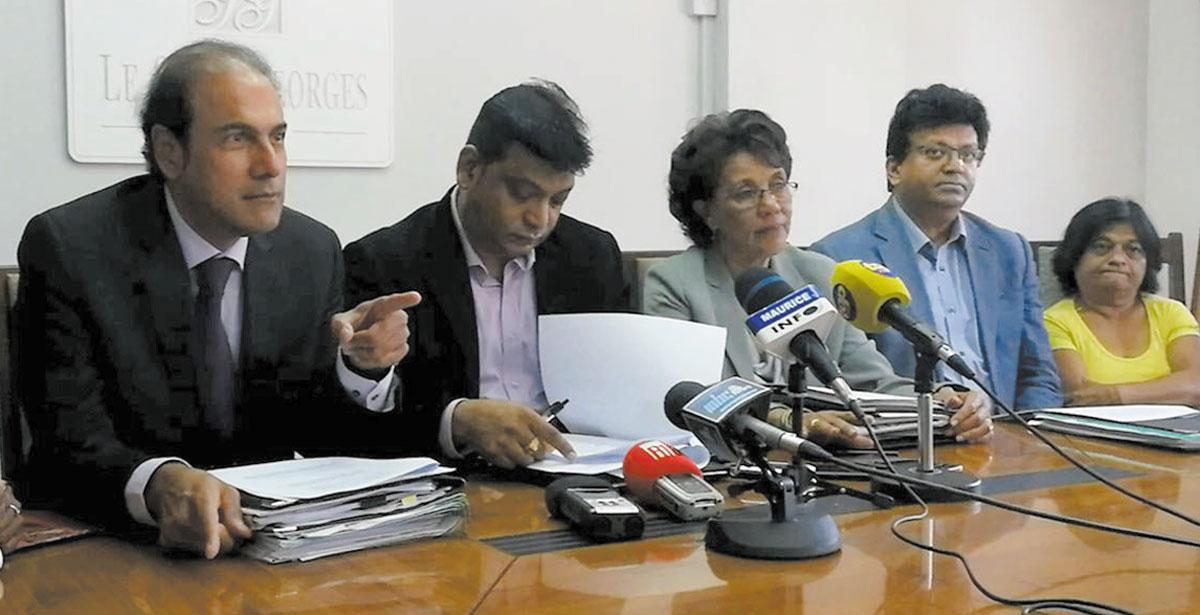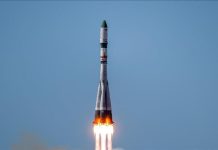Africa-Press – Mauritius. The project to bring together the different platforms from the MMM is ambitious; just as ambitious as the ambition of Steven Obeegadoo himself. Active in politics since the age of 17, Steven Obeegadoo no doubt feels that his status as number two in the current government is not yet the peak of his political career and that another moment is coming, that of realization of the greatest of its ambitions: that of becoming the modern incarnation of militancy.
Steven Obeegadoo and Alan Ganoo for the regrouping of militant forces. P-Radio One Failing to have succeeded in ejecting Paul Bérenger from the leadership of the MMM, he positions himself today as the one who will be able to welcome the disappointed and disillusioned of the interminable wanderings which have lasted since 2005.
It must be admitted that the elements which will be able to accelerate this exodus are reunited: yet another alliance with Navin Ramgoolam and the certainty that an individual with the intellectual capacity and charisma to take over from the historic leader does not currently exist in the party’s Political Bureau, thus positioning Joanna Bérenger in his father’s estate.
Failing to become a leader by acclamation and by competence, one can become a leader by being carried by the existing vacuum or that one creates around oneself – all the traditional parties have proven it.
Steven Obeegadoo will also have understood another thing: a new defeat of the PTr and the MMM will cause the annihilation of these parties, which will open up a new political space in Mauritius.
At least, a new defeat will cause the PTr and the MMM to find themselves in the middle of internal struggles that will knock them out for several years, which will favor the emergence of other political formations.
And Steven Obeegadoo understood that he had all the means to occupy a prominent place in this new political space, even if it meant breaking the current alliance with Pravind Jugnauth at some point. What is certain for the moment is that the schematism that is emerging gives Steven Obeegadoo a clear vision of things.
Everything seems to confirm that we will have a clear battle for the next general elections: Pravind Jugnauth against Navin Ramgoolam for the political control of the ‘Hindu Belt’; and Steven Obeegadoo facing a Bérenger (father or daughter) for the few urban seats which will give a comfortable majority to whoever wins constituencies 4 to 14 – the Duval clan bringing what is left of their 5 cents and, why not, points from Adrien Duval’s driver’s license to this equation.
All of this, Steven Obeegadoo felt perfectly well and integrated into his own political calculation, even if he lacks an essential element in his equation: clearly defining what Militancy should be in the 21st century, knowing that it is a something that the MMM is unable to do today.
Will he win his bet? India chairs the G20 India took over the G20 presidency in December last year. This presidency will last for a year, until December of this year. This information has gone unnoticed by the local media even though it is of great importance to us.
Not only because Indian Prime Minister Narendra Modi has already indicated his intention to invite his Mauritian counterpart to some of the G20 gatherings, but above all because – whatever some xenophobic voices say – India will become a regional power.
increasingly dominant and an increasingly important partner for us. Indian Prime Minister Narendra Modi or the art of resolving contradictions. P – The Hindu
And by wanting too much to reduce Indian politics to its current ideological expression, that given to it by the BJP, we too easily tend to obscure a view that we must absolutely keep clear and objective: India’s economic ambitions and the geopolitics of Indian Ocean.
Modi’s rise to power in 2014 signified a paradigm shift in Indian foreign affairs strategy: India finally shed the dusty idealism of Nehru in order to assert absolute pragmatism.
To put it another way, India no longer defends a vision of the world based on ideologies that have become obsolete, but today advances its interests with a cold and calculating realism.
Moreover, the current Minister of Foreign Affairs, Subrahmanyam Jaishankar, is the very embodiment of this pragmatism based on the technocratic mastery of economics and political sciences.
This pragmatism has also been perfectly deployed in terms of the Great Peninsula’s foreign policy since 2020. India is emerging stronger from the Covid pandemic, and this is closely linked to its positions . For example, it refused to let go of Russia – its historic partner – when Putin invaded Ukraine.
This allowed India to negotiate the purchase of Russian oil at a price well below the market price, in turn helping to bypass Western sanctions on the Russian economy – which will grow by 2.4 % this year according to the IMF.
At the same time, India has not alienated its American ally either, finding highly strategic economic common ground for the United States, especially in the field of new technologies.
The same goes for its military cooperation, with France in particular, President Macron clearly announcing that India is becoming a privileged partner of France and French industries. Thus, Indian diplomacy becomes a master in the art of resolving contradictions that may currently seem insurmountable.
It plays perfectly well on several fronts because it precisely demonstrates a pragmatism that works and which requires maintaining a vital non-alignment for its development and the promotion of its interests.
However, it is precisely this non-alignment and this rediscovered pragmatism that must challenge us in Mauritius. Especially since this non-alignment and this pragmatism will weigh very heavily in the geopolitical calculations of the Indian Ocean.
Will we therefore be able to redefine our cooperation objectives with India in order to make it a partner in achieving our own economic, security and industrial development objectives?
For More News And Analysis About Mauritius Follow Africa-Press







